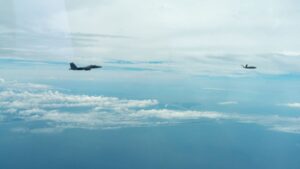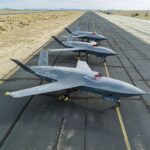
NATIONAL HARBOR, Md.--While the U.S. Air Force has budgeted $522 million for Collaborative Combat Aircraft (CCA) in fiscal 2024 and discussed the program in fairly broad terms, the future CCA acquisition strategy and much of the nitty gritty CCA development will be in the dark. CCA is one of the major thrusts of Air Force Secretary Frank Kendall's seven operational imperatives. The Air Force plans to spend $5 billion in the future years defense program on CCA, the first increment…











